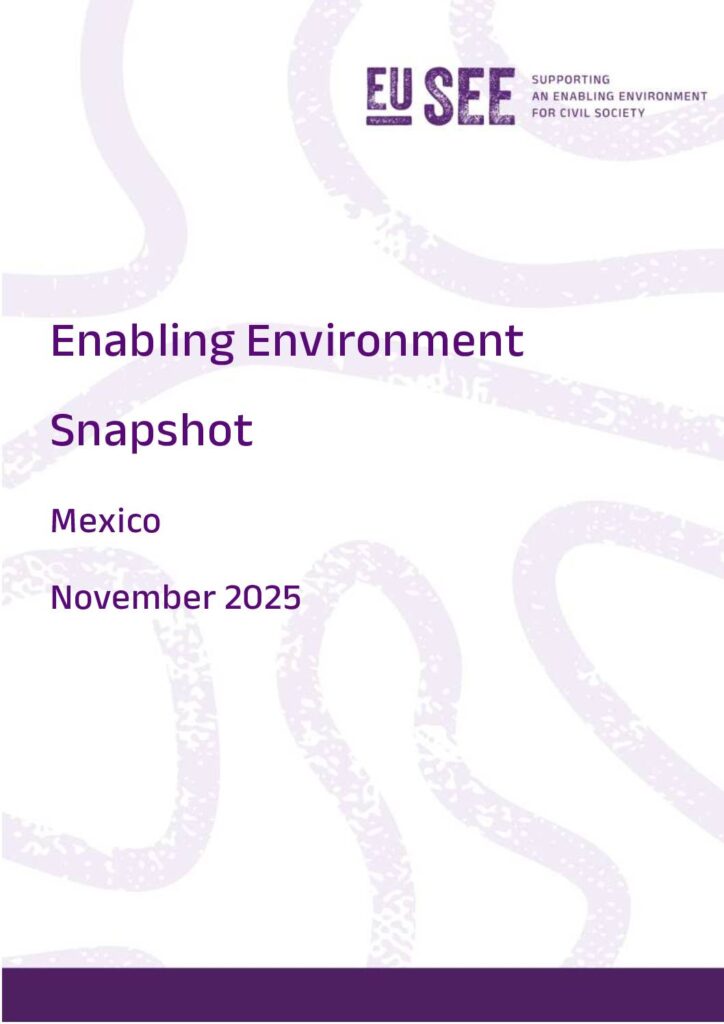The third 2025 “Enabling Environment Snapshot” for Mexico (July–October) highlights a persistently fragile context for civil society, marked by violence, censorship, legal uncertainty, and increasing digital surveillance. Attacks on land and environmental defenders, journalists, and communities remain widespread—particularly in Oaxaca, Chiapas, Sinaloa, and regions affected by organised crime or large-scale development projects. Student movements have resurged nationwide, demanding participation, funding, and justice, while positive examples—such as environmental victories in Cozumel and the Gulf of California, and the #Libéralas campaign—demonstrate civil society’s resilience.
Regulatory reforms continue to shape the civic space. CSOs are actively engaging with the government and the FATF regarding the implementation of the reformed anti-money laundering law (LFPIORPI), highlighting compliance challenges faced by organisations, particularly smaller ones. A notable positive development is Querétaro’s creation of a Council for the Promotion of Civil Organisations, although disparities in state-level support persist. While some states have launched or maintained funding programmes, others, such as Nuevo León, face significant delays that threaten organisational sustainability. The dissolution of Guanajuato’s Fidesseg fund underscores tensions around transparency in public–private initiatives.
Institutionally, major reforms—the establishment of a new judiciary, changes to the Amparo Law, and the initial stages of electoral reform—raise concerns regarding access to justice, separation of powers, and transparency. Oversight mechanisms have weakened considerably; the new transparency body has dismissed nearly all appeals, while reforms to the tax code and surveillance laws expand state monitoring capacities without adequate safeguards. Digital rights organisations have obtained key legal suspensions and filed challenges, warning of serious risks to privacy and freedom of expression.
Public narratives show mixed trends: while the government’s discourse towards CSOs is less confrontational than under the previous administration, selective openness—particularly towards gender-related agendas—creates uneven engagement. Meanwhile, disinformation and anti-rights digital campaigns continue to intensify.
Looking ahead, 2026 will test Mexico’s civic space through debates on electoral reform, the implementation of judicial and legal changes, the renegotiation of the USMCA, and the security challenges associated with organised crime and the World Cup. Despite tensions at the national level, opportunities remain through local collaboration, the gender policy agenda, and ongoing dialogue with fiscal and regulatory authorities to strengthen a more enabling environment for civil society.

